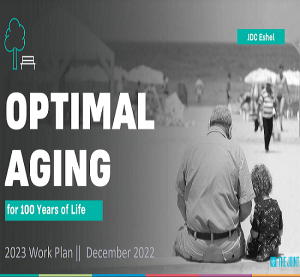Goals:
Optimal treatment of patients with dementia and delirium, diagnosis upon admission to the hospital, appropriate care while preventing complications, release coordinated with family members and community services.
The Need:
There are between 120,000 and 150,000 people with dementia in Israel, constituting up to 22% of older people population.
A survey by the Ministry of Health in 2016 shows that the frequency of hospitalizations of people with dementia is higher than that of their peers who do not have this impairment, and the duration of their hospitalization is longer. This is significant because acute hospitalization can be a negative turning point in the life of a person with dementia and can put him or her at risk of serious functional and cognitive decline. This may lead to prolonged or repeated hospitalizations, relocation to a nursing home, further illness and even death.
However, medical staff trained to deal with dementia and the consequences of hospitalization can reduce these dangers. A hospital stay can become an opportunity instead of a risk through the proper treatment and a comprehensive geriatric and psychological diagnosis. The health care system should help patients take advantage of community services, offering support and assistance to caregivers and creating a continuum of treatment and coordination.
Target Population:
People suffering from mental deterioration, dementia and delirium, and their families
Activities
- Educating medical staff about dementia and delirium with an emphasis on improving the hospital environment
- Diagnosis of older people people with cognitive decline, dementia or delirium upon admission to the emergency room
- Intervention by health professionals and volunteers
- Hospital release coordinated with family members and community services





